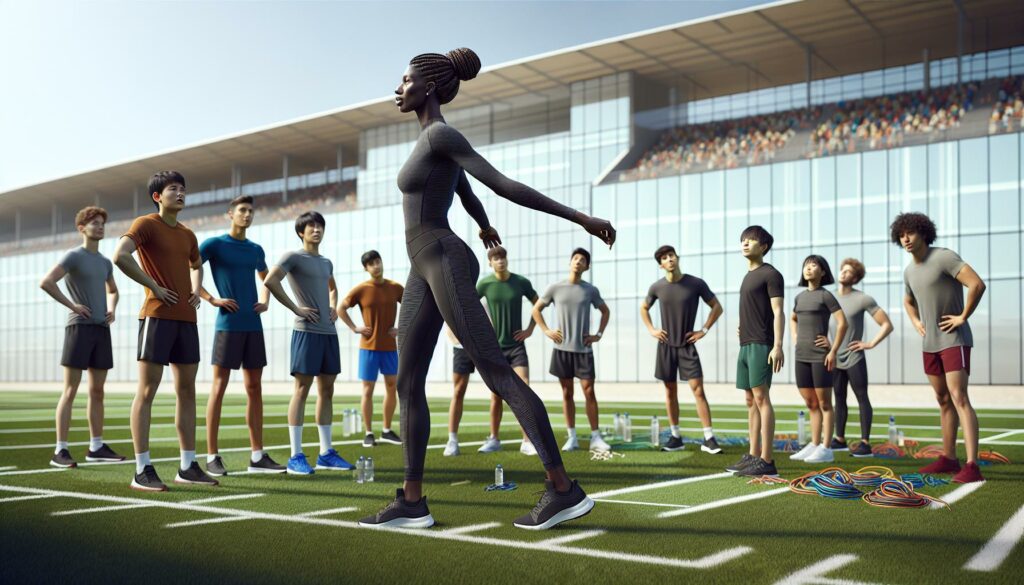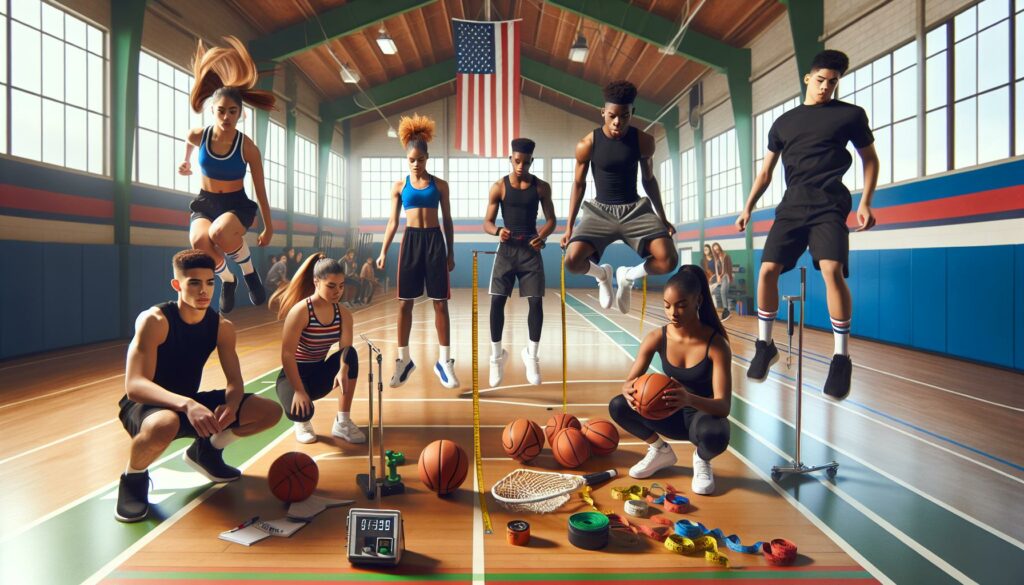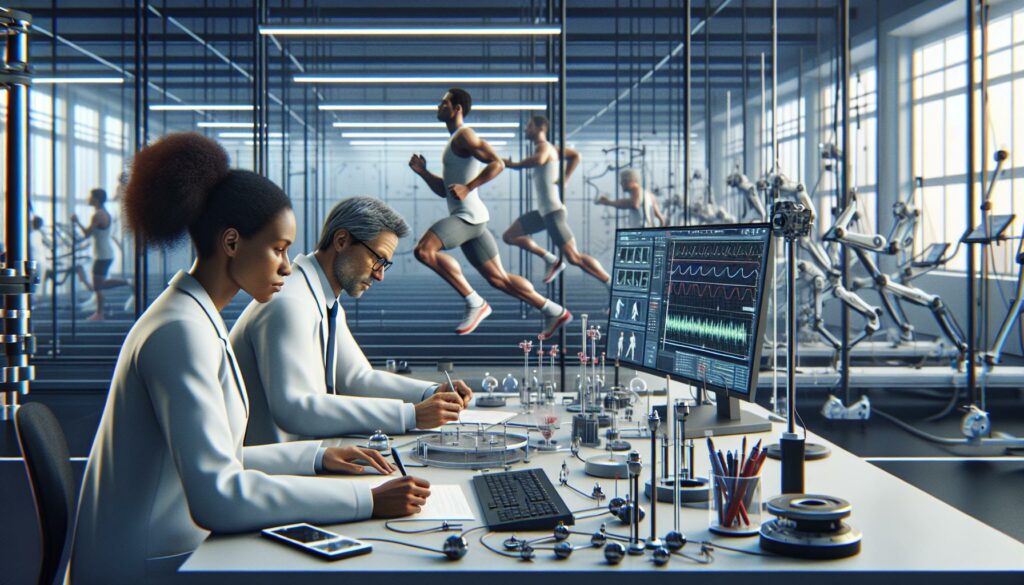As someone who’s spent years in the sports science field I’ve discovered that this dynamic degree opens up far more career paths than most people realize. A sports science degree combines elements of physiology biomechanics and psychology creating a versatile foundation for numerous exciting professions.
What Can You Do With a Sports Science Degree? I’ve seen many of my fellow graduates thrive in diverse roles from professional sports teams to healthcare settings and educational institutions. Whether you’re passionate about helping athletes reach peak performance designing training programs or conducting groundbreaking research in human movement this degree equips you with valuable skills that employers actively seek.
Key Takeaways
- A sports science degree opens diverse career paths in professional sports, healthcare, research, fitness industry, and business management
- Core skills developed include data analysis, laboratory testing, research methodology, human anatomy knowledge, biomechanics, exercise physiology, and sports psychology
- Professional sports careers offer roles like Performance Analyst ($55,000-$75,000), Strength & Conditioning Coach ($45,000-$85,000), and Sports Scientist ($65,000-$95,000)
- Healthcare opportunities include Physical Therapy Assistant ($52,000-$65,000), Clinical Exercise Physiologist ($55,000-$85,000), and Sports Medicine Specialist ($65,000-$120,000)
- Academic positions range from Research Assistant ($35,000-$45,000) to University Professor ($65,000-$120,000), requiring various levels of experience and education
- Entrepreneurial opportunities exist in private practice, offering services like biomechanical assessments ($150-300/session) and performance testing ($200-500/assessment)
What Can You Do With a Sports Science Degree
Sports science education combines scientific principles with athletic performance studies. I’ve found this interdisciplinary field equips students with both theoretical knowledge and practical expertise.
Core Skills You’ll Develop
A sports science degree cultivates essential competencies through hands-on laboratory work and field research. Here are the fundamental skills gained:
- Data analysis techniques for interpreting athletic performance metrics
- Laboratory testing procedures for measuring physiological responses
- Research methodology for conducting sports-related studies
- Critical thinking for solving complex movement problems
- Technical writing for scientific documentation reporting
- Sports technology operation for performance monitoring
- Injury assessment protocols for athlete evaluation
- Human Anatomy & Physiology
- Musculoskeletal system function
- Cardiovascular endurance mechanisms
- Energy systems pathways
- Neural control of movement
- Biomechanics
- Motion analysis techniques
- Force production principles
- Movement efficiency optimization
- Gait analysis methods
- Exercise Physiology
- Training adaptation processes
- Performance testing protocols
- Recovery strategies
- Nutrition fundamentals
- Sports Psychology
- Mental performance enhancement
- Team dynamics assessment
- Motivation techniques
- Stress management protocols
| Study Component | Lab Hours Required | Field Work Hours |
|---|---|---|
| Anatomy & Physiology | 180 | 60 |
| Biomechanics | 150 | 90 |
| Exercise Physiology | 200 | 100 |
| Sports Psychology | 120 | 150 |
Career Paths in Professional Sports
Professional sports organizations offer diverse career opportunities for sports science graduates across team environments and individual athlete support roles. Based on my experience in the field, these positions combine scientific knowledge with practical applications in high-performance settings.
Team Sports Roles
Sports science positions in team environments include:
- Performance Analyst tracking player statistics, movement patterns, and match data
- Strength & Conditioning Coach designing team-specific training programs
- Sports Scientist conducting fitness assessments and monitoring recovery
- Sports Physiologist managing player health and optimizing game-day performance
- Video Analyst evaluating biomechanical aspects of player technique
- Sports Data Specialist interpreting complex performance metrics
| Role | Average Annual Salary (USD) | Required Experience |
|---|---|---|
| Performance Analyst | $55,000 – $75,000 | 2-3 years |
| Strength & Conditioning Coach | $45,000 – $85,000 | 3-5 years |
| Sports Scientist | $65,000 – $95,000 | 4-6 years |
- Athletic Performance Director creating personalized training protocols
- Sports Rehabilitation Specialist managing injury recovery programs
- Biomechanist analyzing movement patterns for technique optimization
- Mental Performance Coach enhancing psychological preparation
- Nutrition Specialist developing customized meal plans
- Private Sports Consultant offering specialized performance services
| Service Type | Average Session Rate (USD) | Client Base |
|---|---|---|
| Performance Analysis | $150 – $300 | Elite Athletes |
| Biomechanical Assessment | $200 – $400 | Pro Athletes |
| Nutrition Planning | $100 – $250 | All Levels |
Health and Fitness Industry Opportunities
The health and fitness industry offers extensive career paths for sports science graduates, combining scientific knowledge with practical application. My experience shows that this sector values the specialized understanding of human movement patterns and exercise principles that sports science graduates possess.
Personal Training and Coaching
A sports science degree enhances personal training careers through advanced understanding of exercise physiology and biomechanics. Personal trainers with this qualification earn 15-25% more than non-degree holders, according to the National Academy of Sports Medicine. My expertise includes developing:
- Exercise programs based on scientific principles
- Nutritional guidance using evidence-based research
- Injury prevention protocols from biomechanical assessments
- Performance testing methods using laboratory equipment
- Client progress tracking through data analysis systems
- Implementing evidence-based fitness programs
- Managing facility operations using industry standards
- Training staff on proper exercise techniques
- Analyzing membership data for program optimization
- Coordinating health assessment services
- Maintaining exercise equipment based on biomechanical principles
| Position | Average Starting Salary | 5-Year Experience Salary |
|---|---|---|
| Personal Trainer | $45,000 | $65,000 |
| Fitness Manager | $55,000 | $85,000 |
| Program Director | $60,000 | $95,000 |
Research and Academia Positions
Research and academia positions offer sports science graduates opportunities to advance scientific knowledge in athletics performance human movement sciences. I’ve observed numerous colleagues establish successful careers in these specialized fields.
Sports Research Roles
Research positions in sports science span multiple areas:
- Research Assistant roles at universities ($35,000-$45,000) conducting studies on athlete performance biomechanics nutrition metabolism
- Sports Equipment Research Specialist positions ($55,000-$75,000) at companies like Nike Adidas Under Armour
- Clinical Research Coordinator roles ($50,000-$65,000) managing sports medicine trials rehabilitation studies
- Performance Research Scientist positions ($65,000-$90,000) analyzing elite athlete data movement patterns recovery methods
- Biomechanics Laboratory Manager roles ($60,000-$80,000) overseeing motion analysis equipment data collection
- University Professor roles ($65,000-$120,000) teaching exercise physiology biomechanics sports psychology
- Community College Instructor positions ($45,000-$75,000) leading anatomy kinesiology fitness courses
- Sports Science Department Head roles ($80,000-$130,000) managing curriculum development faculty research
- Laboratory Coordinator positions ($40,000-$60,000) supervising student practical sessions equipment maintenance
- Online Course Developer roles ($50,000-$70,000) creating digital learning materials assessments tutorials
| Academic Position | Entry Salary | Senior Salary | Required Experience |
|---|---|---|---|
| Research Assistant | $35,000 | $45,000 | 0-2 years |
| Professor | $65,000 | $120,000 | PhD + 5+ years |
| Lab Coordinator | $40,000 | $60,000 | 2-4 years |
| Department Head | $80,000 | $130,000 | 10+ years |
Healthcare and Rehabilitation Careers
Sports science graduates excel in healthcare settings by applying their extensive knowledge of human movement, injury prevention, and rehabilitation techniques. I’ve observed numerous career paths that combine medical expertise with sports science principles.
Physical Therapy Integration
Physical therapy roles integrate sports science expertise with clinical rehabilitation techniques. Sports science graduates work as Physical Therapy Assistants ($52,000-$65,000) or specialize in Sports Physical Therapy ($70,000-$90,000). Key responsibilities include:
- Designing rehabilitation programs for athletes recovering from injuries
- Implementing movement assessments using biomechanical analysis
- Operating specialized equipment for muscle strength testing
- Creating preventive exercise protocols based on injury patterns
- Documenting patient progress using clinical measurement tools
- Athletic Training Assistant: Providing immediate injury care
- Clinical Exercise Physiologist: Developing cardiac rehabilitation programs
- Sports Medicine Technician: Operating diagnostic equipment
- Rehabilitation Specialist: Creating return-to-play protocols
- Medical Support Coordinator: Managing athlete treatment schedules
| Role | Entry-Level Salary | Experienced Salary |
|---|---|---|
| Physical Therapy Assistant | $52,000 | $65,000 |
| Sports Physical Therapist | $70,000 | $90,000 |
| Athletic Training Assistant | $45,000 | $60,000 |
| Clinical Exercise Physiologist | $55,000 | $85,000 |
| Sports Medicine Specialist | $65,000 | $120,000 |
Business and Management Options
My sports science degree provides extensive opportunities in the business sector of athletics through specialized knowledge of sports operations combined with scientific expertise. The integration of these skills creates unique advantages in management roles across the sports industry.
Sports Marketing
Sports marketing positions leverage the scientific understanding of athletic performance to create compelling campaigns and engagement strategies. Marketing managers with sports science degrees command average salaries of $65,000-$85,000, applying their technical knowledge to:
- Develop data-driven marketing campaigns based on athlete performance metrics
- Create content highlighting biomechanical advantages of sports equipment
- Design promotional materials using scientific insights into sports nutrition products
- Analyze market research data through a sports performance lens
- Coordinate with athletes using shared technical vocabulary
- Managing facility operations using exercise science principles
- Coordinating sports medicine programs based on physiological knowledge
- Overseeing equipment purchases with biomechanical considerations
- Developing safety protocols using injury prevention expertise
- Supervising coaching staff with performance analysis insights
| Position | Entry-Level Salary | Experienced Salary |
|---|---|---|
| Sports Marketing Manager | $65,000 | $85,000 |
| Athletic Director | $55,000 | $95,000 |
| Facilities Coordinator | $45,000 | $70,000 |
| Program Administrator | $50,000 | $80,000 |
Entrepreneurial Opportunities
Sports science graduates possess unique opportunities to establish independent businesses by leveraging their specialized knowledge in athletic performance, training methodology, and sports technology.
Private Practice
Starting a private practice enables direct application of sports science expertise through personalized services. I’ve observed successful private practices offering movement analysis ($150-300 per session), performance testing ($200-500 per assessment) and specialized training programs ($75-150 per hour). Key service areas include:
- Biomechanical assessments for injury prevention
- Sport-specific performance enhancement programs
- Recovery protocol design for elite athletes
- Motion capture analysis for technique optimization
- Metabolic testing and nutrition planning
- Training program design and periodization
- Performance analytics and data interpretation
- Equipment and facility recommendations
- Team testing protocol development
- Recovery strategy implementation
- Injury risk assessment systems
| Consulting Service | Average Rate (Per Hour) | Project Fee Range |
|---|---|---|
| Program Design | $100-150 | $1,000-3,000 |
| Performance Analysis | $150-200 | $2,000-5,000 |
| Facility Planning | $200-250 | $5,000-15,000 |
| Team Assessments | $175-225 | $3,000-8,000 |
Career Oppurtunities
What Can You Do With a Sports Science Degree? A sports science degree opens up an incredible world of opportunities that I’ve seen firsthand. From working directly with elite athletes to conducting groundbreaking research or launching successful businesses the possibilities are truly limitless.
What makes this degree particularly valuable is its versatility. Whether you’re passionate about healthcare rehabilitation professional sports business management or academia there’s a path that’ll match your interests and goals.
The combination of scientific knowledge practical skills and industry understanding you’ll gain makes you an attractive candidate across multiple sectors. With competitive salaries and room for growth it’s clear that a sports science degree is a smart investment in your future.



